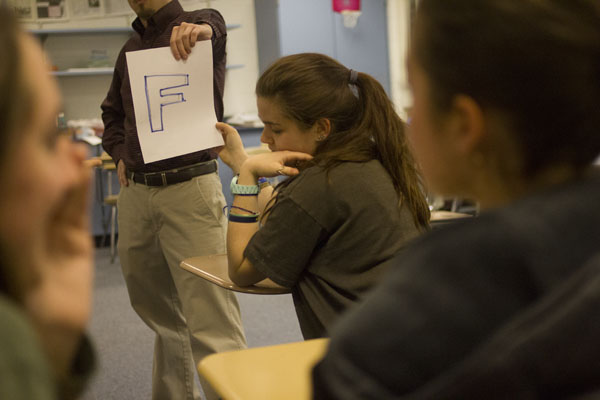When a student talks about being embarrassed or teased at school, most would assume the provocation is coming from a peer. However, according to a non-scientific Oracle-conducted survey of 221 students, 59 percent have felt personally offended or victimized by something a teacher said to them or their class. The Oracle Editorial Board knows that South is a school where most students feel well-treated by their teachers nearly all of the time, but any negative response on this survey is worthy of being addressed.
The Oracle Editorial Board recognizes that teachers probably do not intend to hurt the feelings of their students or make them uncomfortable. However, it is important that teachers continuously reflect on their behavior in class and remain open to their students’ feedback to ensure that they come across in a way that is respectful to students.
Junior Kelsey Strong’s* teacher calls her out in class and embarrasses her when she isn’t doing well in what they are learning.
“[My teacher] constantly calls me out in class to ‘make sure’ I get the material, but in reality [this] just makes it obvious when I’m struggling,” Strong said. “Because I am so embarrassed being one of the people openly [called] out in the class, I stay quiet more and don’t talk as much, ruining my grade further.”
According to Strong, her teacher also draws attention to struggling students by making it obvious who in her class received an A on a test or quiz, who received a B and who received a grade lower than that. According to the survey, 81 percent of students have had a teacher who reveals students’ grades before their peers, either by stating them outright or making it obvious who received higher grades. Seventy-one percent also believe that this practice is unfair.
“With this system everyone knows everyone else’s grades, and I find it demeaning,” Strong said. “It makes the already-too-competitive grade system even worse.”
The Oracle Editorial Board asserts that teachers should constantly reflect on their actions to ensure they remain respectful. However, we also recognize that a teacher simply may not realize they have offended a student. South teacher Andrew King* recognizes the miscommunication that can occur between teachers and students.
“People respond differently to how people talk,” King said. “Being mean [occurs] when students and teachers don’t see each other’s perspectives.”
While students should never feel pressured to simply accept treatment from their teacher that they feel is offensive or inappropriate, it is their responsibility to take the first step and communicate their discontent to either the teacher or a trusted adult.
Strong informed an adult she trusts about her teacher’s behavior, but she did not feel that it made any impact, she said. The Oracle Editorial Board understands that each case is handled differently regarding a teacher’s conduct, but students need to feel heard in their efforts to improve their classroom environment. This support is especially important if they do not feel comfortable talking directly with their teacher.
Freshman Morgan Jacobs* did communicate with her teacher when he/she offended her. Her teacher often makes inappropriate jokes on a variety of topics including depression, physical appearance and race, she said. She believes that her teacher makes these jokes in order to impress the students in the class, but in reality these jokes offend Jacobs and make her feel in opposition to a person that should be helping her, she said.
The Oracle Editorial Board does not wish for teachers to be scared of joking with their students or developing a more informal relationship. When teachers have to maintain the attention of their students for 50 minutes, they may accidentally make an off-color or rude comment. Everyone makes these mistakes, but the best way to get past an occasional mistake is to establish proper communication between the teacher and student.
Although Jacobs did confront her teacher, it did not improve their relationship or the teacher’s classroom behavior. After a student brings the issue to their attention, the best way teachers can handle their slip-ups is to apologize when they know they have made a mistake. No one is perfect, but true respect from students will be earned by teachers who are honest about these imperfections and strive to create the safest and most comfortable classroom environment possible.
*Name changed to protect students’ and teacher’s identities








